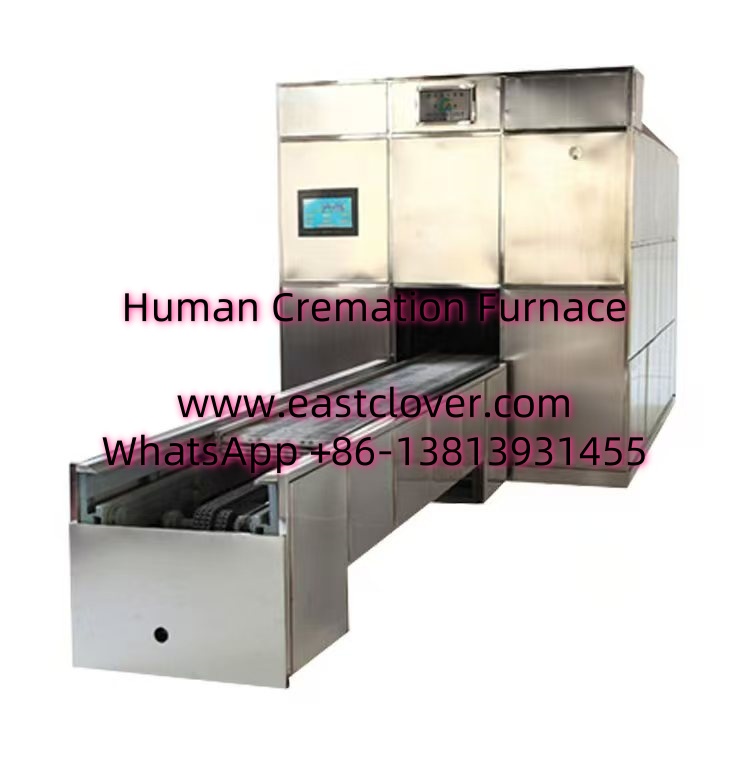The Evolution of Cremation Technology
For centuries, cremation has been a meaningful way to honor loved ones, but the methods have remained relatively unchanged. Today, technological advancements are transforming this age-old practice. Next-generation cremation furnaces, equipped with smart control systems and AI-driven technologies, are redefining efficiency, sustainability, and personalization in end-of-life care. This innovation addresses growing demands for eco-friendly solutions and dignified, customized services.
Smart Control Systems: Precision and Connectivity
Modern cremation furnaces integrate IoT-enabled sensors and automation to optimize performance. Key features include:
- Real-Time Monitoring: Sensors track temperature, emissions, and combustion efficiency, ensuring compliance with environmental standards.
- Automated Adjustments: Systems dynamically regulate oxygen levels and fuel consumption to reduce energy waste.
- Remote Management: Operators control furnaces via mobile apps, enabling oversight from any location.
These systems minimize human error and enhance operational transparency, fostering trust among families and service providers.
AI-Driven Cremation: Intelligence Meets Compassion
Artificial intelligence elevates cremation technology by analyzing vast datasets to optimize processes:
- Predictive Analytics: Machine learning anticipates maintenance needs, reducing downtime and repair costs.
- Emission Reduction: AI algorithms adjust combustion parameters in real time to cut greenhouse gas output by up to 30%.
- Personalized Services: Families can customize memorials through digital interfaces, such as selecting music or streaming the ceremony.
AI also aids in ethical considerations, ensuring data privacy and aligning practices with diverse cultural norms.
Benefits of Next-Generation Cremation
Sustainability
By optimizing fuel use and slashing emissions, these furnaces significantly reduce the carbon footprint of cremation—a critical advancement as demand grows globally.
Efficiency
Automation cuts operational costs by 20–40%, while faster processing times allow facilities to serve more families without compromising quality.
Human-Centered Care
Digital tools enable personalized memorials, fostering emotional connections even in grief. Families gain peace of mind through transparent, eco-conscious practices.
Ethical and Cultural Considerations
While technology offers immense benefits, it must navigate sensitive cultural and ethical landscapes. For instance, AI systems must anonymize data to protect family privacy, and operators should receive training to respect diverse rituals. Open dialogue with communities ensures these innovations align with local values.
www.southclover.com
The fusion of smart control systems and AI is revolutionizing end-of-life care, making cremation more sustainable, efficient, and compassionate. As technology evolves, it promises to further harmonize tradition with modernity, offering families meaningful ways to honor loved ones while safeguarding the planet. The future of cremation lies in balancing innovation with empathy—a mission these advancements are uniquely poised to fulfill.
FAQs
How do AI-driven cremation furnaces reduce emissions?
AI adjusts combustion parameters in real time, optimizing fuel efficiency and minimizing harmful byproducts like carbon monoxide.
Are these systems more expensive than traditional furnaces?
Initial costs are higher, but long-term savings from reduced fuel use and maintenance often offset the investment.
Can families participate in the cremation process?
Yes! Digital platforms allow families to personalize settings, view process updates, or even stream services remotely.
Is AI compatible with diverse cultural practices?
Providers can program systems to accommodate specific rituals, such as extended burn times or ceremonial protocols.
How secure is the data collected by smart furnaces?
Encrypted networks and anonymization protocols ensure family information remains confidential.

Comments are closed